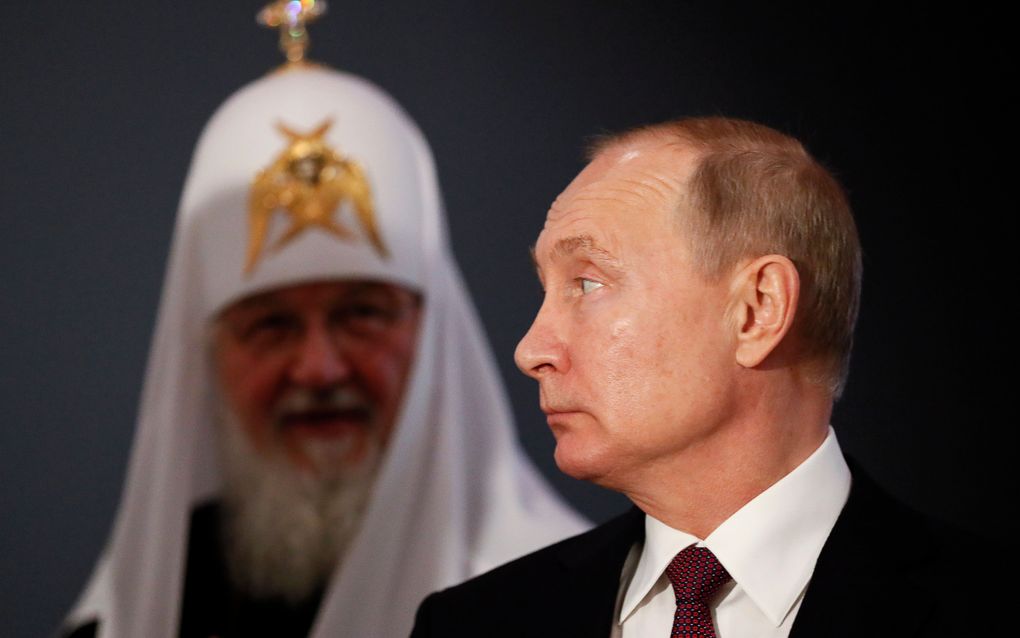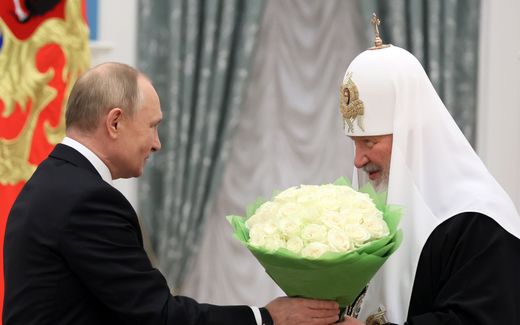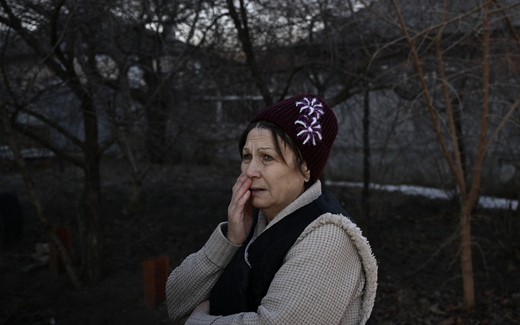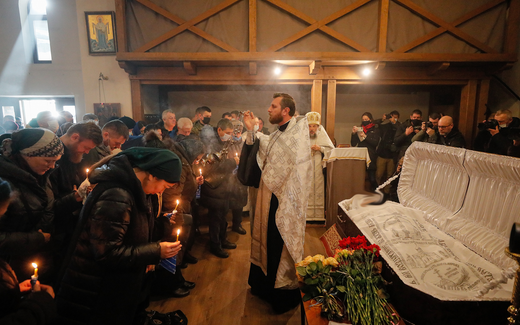Putin can blindly trust Russian Orthodox Church
25-02-2022
Eastern Europe
Maarten Stolk, RD

Photo EPA, Shamil Zhumatov
Eastern Europe
The Russian Orthodox Church is silent about Russia’s attack on neighbouring Ukraine. President Putin does not have to worry about possible criticism from the Russian Church either. The Church will only want to strengthen Russia’s position.
While church leaders worldwide condemn the Russian aggression, Moscow’s Russian Orthodox Patriarch Kirill has been silent. According to Martin Lessenthin of the German human rights organization Internationale Gesellschaft für Menschenrechte, that is because his Church has close ties to Putin and those in power in the Kremlin. “As Putin’s power grows, so does the already overwhelming dominance of the Russian Orthodox Church. It sees itself as a national institution, next to those in power.”
According to Lessenthin, Russian nationalism also plays a role in this. “All other Christian churches are seen as un-Russian. Its role as a state church has yielded much for the Russian Orthodox Church so far. Not only are Putin and his elite personally involved in the Church, but they also demonstrate their willingness to act as protectors of Russian Orthodoxy, at home and abroad.”
The latter also plays a role in the conflict in Ukraine. And with that, the Russian military attack threatens to fuel the ecclesiastical conflict in the region again. When Putin decreed on Monday evening recognizing the people’s republics of Donetsk and Luhansk as independent states and announcing the deployment of Russian troops, he also cited the protection of Orthodox Christians of the Moscow Patriarchate in Ukraine as an argument for Russian action. Putin accused Kyiv of preparing “further acts of violence” against the Ukrainian Orthodox Church of the Moscow Patriarchate.
In Ukraine, the Ukrainian Orthodox Church of the Moscow Patriarchate and the independent Ukrainian Orthodox Church, not under Patriarch Kirill, compete for spiritual leadership over some 60 per cent of the 45 million Ukrainians who profess Orthodox Christianity. The existing wounds in that conflict will “certainly be deepened,” Austrian theologian Dietmar Winkler said on a radio program on Tuesday. “But there is certainly no question of a persecution of Russian Orthodox in Ukraine.”
Army
The Russian Orthodox Church suppresses criticism of Russian interference in Ukraine, Lessenthin notes. “The Church shows that it is always on the side of the Russian army. It has more interests in power expansion than in peace and human rights. The influence of the Church is not great enough anyway to carry out a peace policy against Putin. And it has enough power to weaken the Russian Orthodox Church and neutralize it politically if it doesn’t cooperate. So the Kremlin – that is, Putin – can continue to rely blindly on the Russian Orthodox Church.”
The Internationale Gesellschaft für Menschenrechte spokesman expects the Russian Orthodox Church to play a major role in Donetsk, Luhansk, and other areas. “She will be the dominant force driving the Russification of the remaining Ukrainians. It will also help to keep alive and deepen the enemy image of the West in the rest of Ukraine. The relationship between the Church and those in power can best be described as a collaboration between altar and throne.”
This article was translated by CNE.news and previously published in Dutch daily Reformatorisch Dagblad on February 24th, 2022.
Related Articles





